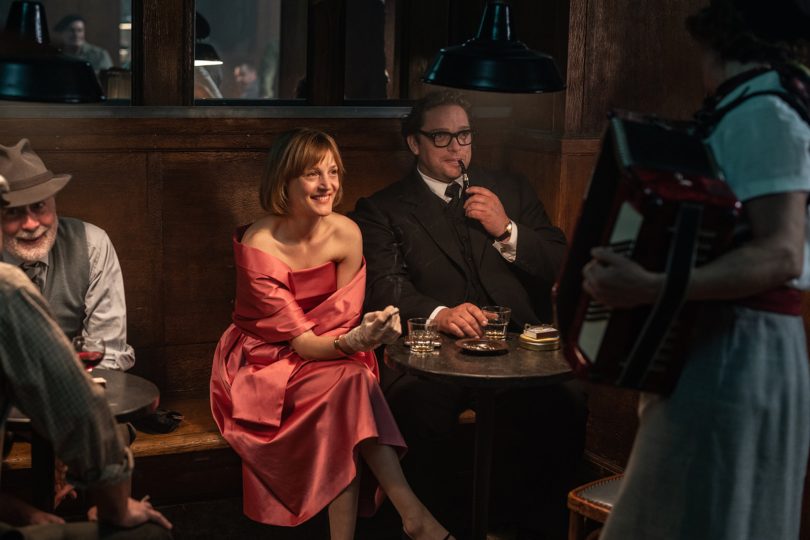Last year, Margarethe von Trotta was awarded by the European Film Academy for her life's creative contribution to European cinema. And not for nothing - few people know that she started her directing career at the same time as Rainer Werner Fassbinder and Werner Herzog, back in 1981. became the first female director to receive the "Golden Lion" of the Venice Film Festival for the film "Lead Times". This year, the premiere of her latest film "Ingeborg Bachmann - Journey to the Desert" took place at the Berlin Film Festival. The director once again returns to strong and creative portraits of women.
Not only European, but also the entire world's cinema history should be grateful for Margarethe von Trotta's innovative films of recent decades, especially her exceptional talent for conveying how personal life becomes political (personal is political). She never shied away from examining topics that are still relevant today and stimulate almost revolutionary discussions. This is both the power of the media and historical events that are not so easily told, women's rights and their freedom to be. Not to mention her amazingly deep and vivid female characters, who became an inspiration for creators such as Jane Campion, Andrea Arnold or Lone Scherfig.

Although Margarethe von Trotta is called a representative of feminist cinema, she is never limited to gender. Like Agnieszka Holland, she is interested in man in a broad social and historical context, his confrontation with existence. As the director herself says, while creating, she never looks with the eyes of a merciless historian - the director becomes a companion of her characters. The desire to understand the vision and thinking of historical women, their behavior, hope and disappointments is something that reflects both Margarethe von Trott and the films she creates. The director often portrays rebellious women in one way or another, striving for personal freedom, for whom the truth is sometimes more important than their own reputation. Such were her heroes Rosa Luxemburg or Hannah Arendt. Ingeborg Bachmann, played by Vicky Krieps, is no exception - bright, influential, rebellious, controversial, painfully direct like her work.
Ingeborg bachmann
In the XNUMXs, when the Nazis came to power, the teenage Austrian poet Ingeborg Bachmann developed a spirit of rebellion and resistance. Before long, this writer became the epitome of resistance and the courage to say no. In the XNUMXs, after finally breaking up with the Swiss playwright Max Frisch after a stormy affair, Bachmann said in her works that love is a killer. The conclusion is obvious - love never heals, love burns people badly, but they still seek it as hypnotized victims.
The female protagonists of Bachmann's works are single or in "non-standard relationships", constantly balancing between melodrama and self-irony. Each of them is obsessed with love and, ultimately, with its downfalls. The writer, divorced from Max Frisch, even said that she might consider reconciling with wolves, but not with men. From the books of this strong and uncompromising creator, it is clear how difficult it was for her to be one of the XNUMXth century. builders and restorers. She, like Simone de Beauvoir, whom she greatly admired, decided to confront injustice head on.

Film director Margarethe von Trotta and writer Ingeborg Bachmann are similar - stubborn, persistent, not afraid to be themselves. Even in today's postmodern world, Von Trotta creates pure classical humanist cinema. According to the director, the film "Ingeborg Bachmann - Journey to the Desert" tells not only about six years of the writer's life, but creates a dialogue with the past about how and to what extent women's lives have changed today. Bachmann searched for freedom all her life, she refused to be enslaved by men, so in the film the desert becomes her salvation and liberation. Especially since wandering, traveling without the possibility of returning, was an integral part of Ingeborg Bachmann's life and work. The entire film is shot in such a way that the geographical locations and external environment reflect the emotional landscape of this famous creator.
The young German star Vicky Krieps, who played Ingeborg Bachmam, says that in order to understand the writer, she dared to open up and be vulnerable on the set, and while acting, she sometimes felt so dizzy that she had to pause and sit down. Ingeborg Bachmann is a very important woman in the lives of both director von Trotta and actress Krieps, so the film is special in that both of them talk to the famous writer from the perspective of different generations.

